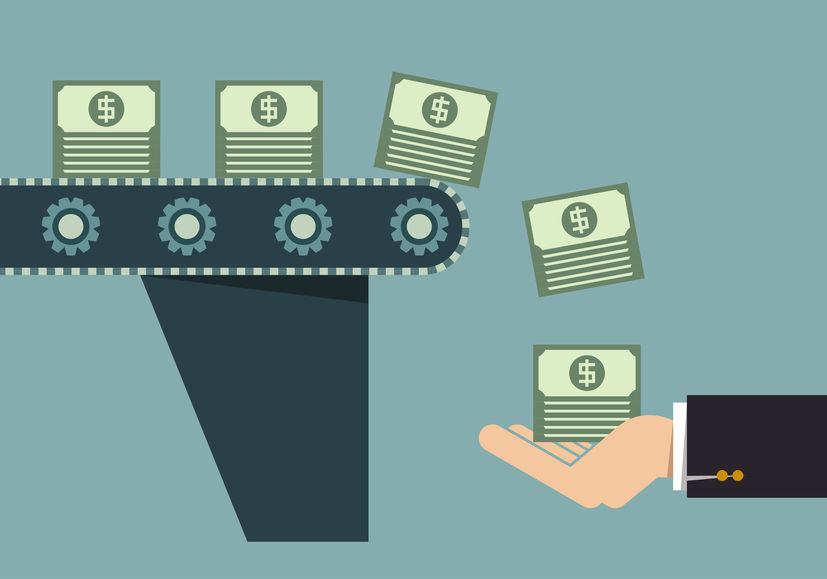Many small businesses, including law firms, heavily depend on clientele to make up their finances and capital. Usually, when work is rendered by a business, the client receives notice, in form of an invoice, either at the end of the month or after the job is complete. It then falls on the client to make a timely payment. However, things aren’t always as swift and easy. If your client fails to make a payment, often times, you as a business owner are consequently left with an unpaid balance. This can result in repetitive and tedious attempts to collect the unpaid invoices and may impose a strain on your client relationship. There are many remedial options that may impose a greater obligation on the client to pay what is respectively owed. The following are key points to take away when engaging with clients who owe you money.
A Signed Contract
A signed contract between both parties is an important and essential component when conducting business. Before commencing any work, every client should sign a contract that details the job that will be completed, expected payment terms, the amount to be paid, and even a late fee provision. It’s best to have all of this information expressly stated upfront so there is no gray area for your client, and both parties have a coherent understanding. Should your client have any objections to the contract, that of course is to be brought up before he or she signs the contract.
Once the contract is signed, this creates a legal and binding responsibility that the client must pay its respective fees in a timely manner. By retaining a signed contract with your client, this gives you the authority to take legal action against them if their bills remain unpaid. In the contrary, if there is no formal agreement like a contract, this highly diminishes your chances to seek help of the courts as it would then be difficult to prove that you and your client even had an agreement to begin with.
Standard Terms and Conditions
Let’s say there was a time where you did not have a signed contract with your client, the alternate route to take is relying on your standard terms and conditions, if any. Often times businesses have these terms to lay out the basic structure of the business in favor of both parties engaging in a transaction. Terms and conditions can also be legally binding if the client read and accepted them.
Both a contract and/or terms and conditions should always state with specificity the general payment terms and stipulate any late payment penalties, non-payment and debt collection possibilities. When a late fee policy is put in place, it will likely deter a client from failing to pay or making an untimely payment, to avoid any additional fees being added to their unpaid balance. With that being said, you as the business owner may implement “late fee reminders” when the invoice has been sent out and is reaching its deadline for payment.
Contact with Client
Frequent contact with your client is vital when dealing with unpaid balances. Before working with anyone, it is recommended to maintain multiple forms of communication from the very start, such as their phone number, email and home address. If the client has a spouse, their contact information should be kept as well, just in case your attempts to get through to your client are unsuccessful.
Communications in form of email, text messages and/or any other written communication is a way of putting them on notice of the situation, it also offers a paper trail providing that you have made repeated attempts to recover the debt. If an invoice has become overdue, it would help to send an email reminder to the client, this ensures that the client is once again notified of the outstanding bill. Nonetheless, your part of the bargain has been fulfilled and it is up to the client to rightfully pay what is owed, so if the balance remains outstanding, try calling the client or setting up a meeting and ask in person. All of these options should be exhausted before attempting to take legal action.
Taking Legal Action
If you feel as though you have exhausted all of your options, you can try reaching out to your client in form of a demand letter. This letter will politely express the facts and will include a reference to the invoice(s) that remain unpaid and your demand to recover those payments by a specific deadline. To conclude your letter, you may express your wishes to pursue legal action against your client if they chose not to cooperate with the letter.
Filing a suit against someone can be very costly and is avoided by many businesses, especially when the amount owed is not substantial enough. If your client has a considerable balance that remains unpaid, you may decide that you want to speak to an attorney about the situation and get their advice on what’s best to do. Reaching out to an experienced attorney at these stages will help ensure you are making suitable decisions and have the ability to take legal action. Your attorney may then offer to write a formal demand letter which will be the final communication before filing suit. A signed attorney letter will set out the total amount owed and demand payment by a certain date. These are quite resourceful as they provide legal notice that failure to meet the demands of the letter will prompt legal action. Lastly, if your client once again fails to comply, your next option would be to file suit in the appropriate court and seek a money judgment to repay the debt.








